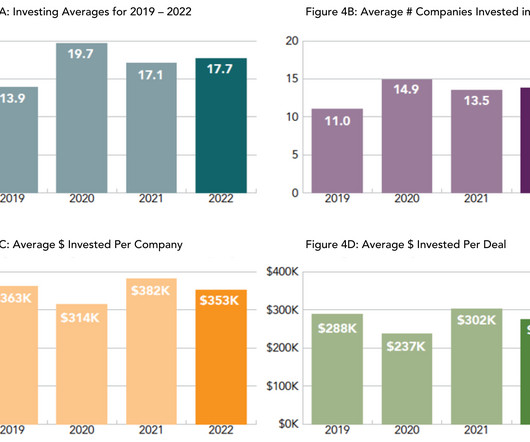The Changing Venture Landscape
Both Sides of the Table
SEPTEMBER 10, 2021
The world around us is being disrupted by the acceleration of technology into more industries and more consumer applications. And the loosening of federal monetary policies, particularly in the US, has pushed more dollars into the venture ecosystems at every stage of financing. how on Earth could the venture capital market stand still?





















Let's personalize your content